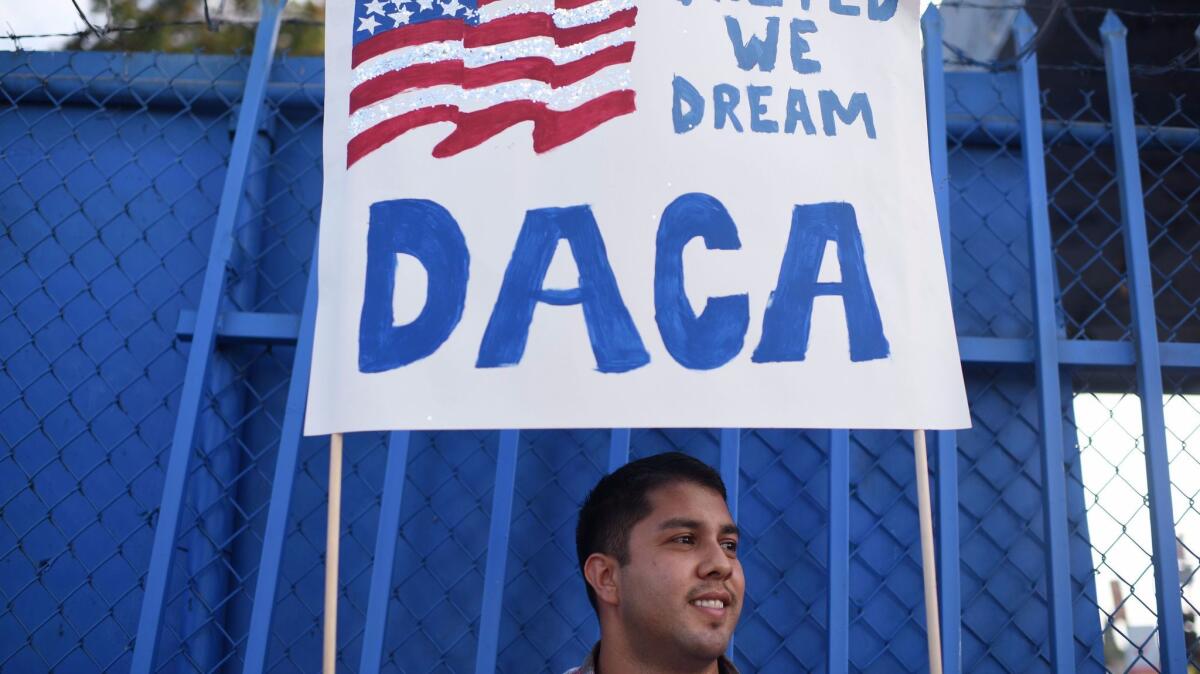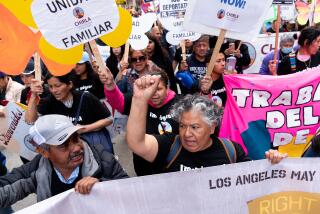Most DACA recipients fear for their safety if deported to country of birth, study finds

This is the fifth year the study has taken place.
A majority of DACA recipients fear returning to their place of birth because of concerns for their safety, a survey published by immigration research groups found.
Large numbers of surveyed Deferred Action for Childhood Arrivals recipients also benefited from their status in the United States, including access to education, higher-paying jobs and being able to financially support family members.
More than 1,100 recipients took part in the fifth annual survey conducted by the Center for American Progress, the U.S. Immigration Policy Center at UC San Diego, United We Dream and the National Immigration Law Center.
Of that number, more than 90% of participants reported they were concerned for their or their family’s safety, security and access to food and education if they returned to their country of birth.
“The things that you often hear are, some not knowing the language, not having any local contacts,” said Phillip Wolgin, managing director of Immigration Policy at the Center for American Progress. “Or getting sent back to a place with a history of violence or gang issues. If you’ve built your life here, that’s really traumatizing being sent back.”
The Supreme Court is set to begin hearings about the program’s future at the end of the year. About 700,000 people are enrolled in the program.
DACA’s existence has been a subject of much debate since its inception. The program was terminated in 2017 by the Trump administration, a decision met with lawsuits from several states. Opponents of the program have argued that it was created without congressional approval, could potentially take jobs and resources from American citizens and grants amnesty to undocumented individuals.
However, Wolgin said he sees the benefits of allowing people to stay and work legally growing every year, including a rise in their wages. The survey was published this month and is particularly timely, he added.
“The reasons we added questions this year about fear of return is because there are really high stakes as we get into the Supreme Court hearing,” he said. “All of the economic gains that we see in our survey are potentially on the line if people lose their ability to work legally or are deported.”
A majority of participants are currently pursuing a bachelor’s degree. Some report being able to purchase their first car or home. Having a valid work permit also has allowed them to seek better jobs, the study found.
For Jose Munoz, National Communications Manager at United We Dream, that meant a chance to work and continue his education.
Munoz, a DACA recipient born in Mexico and raised in the Midwest, has taken part in the survey in the last two years.
“I was able to get a higher-paying job that allowed me to get a tuition reimbursement,” he said. “It really offset the cost of going to college.”
More than half of the participants also reported having an immediate family member who was a U.S. citizen. Termination of DACA could lead to family separation as a consequence, Wolgin said, adding that his organization’s analysis showed that more than 250,000 U.S citizens had one DACA parent.
“We’ve seen the administration do whatever they want to go after immigrants, and there’s no reason to think it will be any different here,” said Wolgin. “It will be a lot of potential damage for American families.”
Fathima writes for the San Diego Union-Tribune.
More to Read
Start your day right
Sign up for Essential California for news, features and recommendations from the L.A. Times and beyond in your inbox six days a week.
You may occasionally receive promotional content from the Los Angeles Times.






